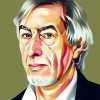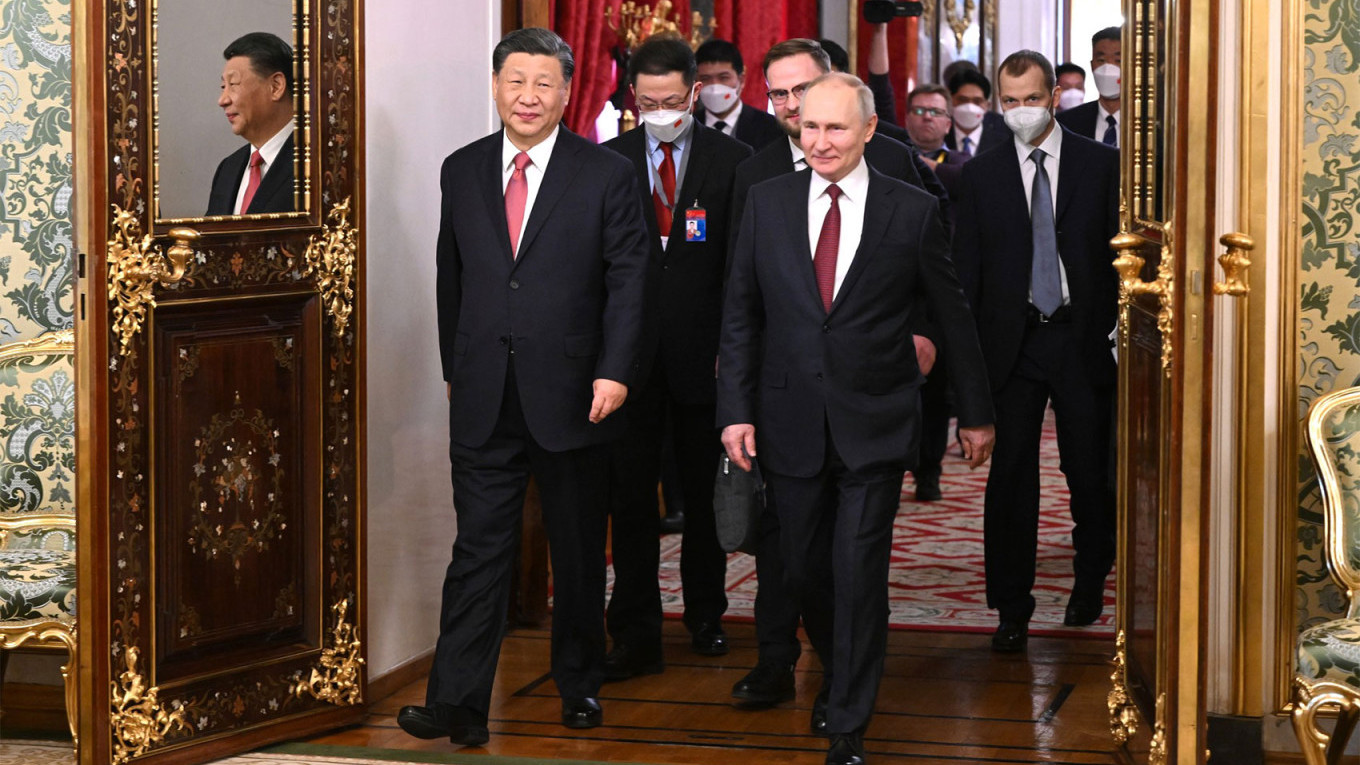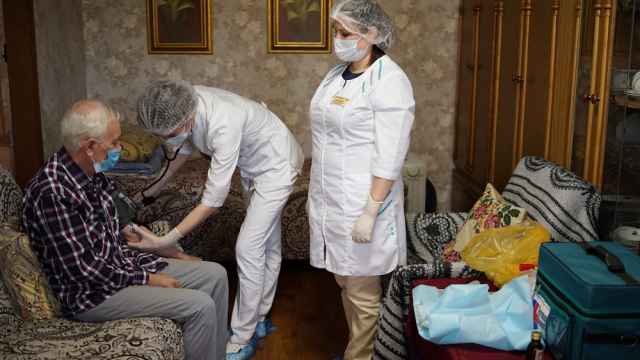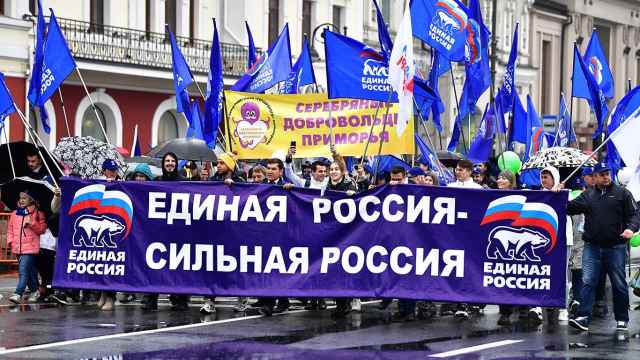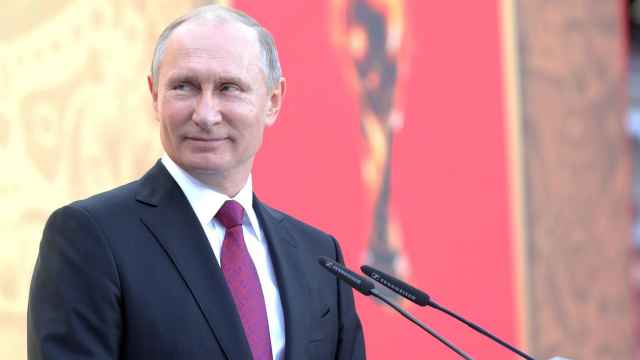There are many fans of former U.S. President Donald Trump among Russian citizens who are interested in politics. On the eve of his inauguration in 2017, there were even more. Our focus groups showed that these supporters hoped that Washington and Moscow, the world's two great powers, would divide the world in half and no longer interfere with each other’s spheres of influence. For this, our parliamentarians raised glasses to celebrate Trump's victory.
Next came the downer. Trump, they discovered, was not omnipotent; he could not deal with Congress the way President Vladimir Putin does with the State Duma. Then it turned out that he did not count Russia as the most important world power, and did not view negotiations with Moscow as necessary.
The dream of divvying up the world with the United States did not dissipate after Trump lost the 2020 election. In December 2021, Russia sent a proposal along these lines to Washington, framing it as a draft agreement for “security guarantees” to ostensibly protect Moscow from NATO expansion.
Observers called it “Putin’s ultimatum” for refraining from invading Ukraine. It is known that the document proposed to return to approximately what The Big Three agreed at the Yalta Conference of 1945. Only now Putin is in Stalin’s place, while President Joe Biden is in FDR’s shoes. But unlike in 1945, Russia sees no need for a third figure like Churchill.
This was probably driven by Putin's personal ambitions. He desires to be a world figure of the same stature as Gorbachev, albeit for the opposite reasons. However, our research is not concerned with the thoughts of one person; it instead evaluates how the Russian public sees things. However, these two things are connected. This move by Putin is in line with how many Russians see their country’s place in the world, and with whom it should discuss it.
The Russian people did not want a conflict. The fact that Russian troops even crossed the Ukrainian border was a surprise for most. What exactly Putin meant by giving this order, we cannot know. But if we continue to think about the parallels between his ideas and those of his supporters, we can assume that he expected a quick victory like that in Crimea or Georgia.
In any case, Putin's “majority” is clearly tuned in to this: it began to quickly come to exactly the state that we noted in 2008 and 2014. To put this in quantitative terms: the share of those approving Putin's activities began to move from its minimum (about 60% at the end of 2021) toward its maximum (88% in 2008 and 2014).
But then it turned out that it was impossible to repeat these ratings blitzkriegs. The rating, before reaching the aforementioned record values, hovered at the level of 80%-83%. It looks like a frozen readiness for triumph, which has still not come. But the absence of expected victories does not affect this semi-triumphant state either.
However, there were two exceptions. Last September, dissatisfaction over Putin’s “partial” mobilization caused his support rating to fall by as much as 7 points. The problem was not with the mobilization itself, but with the way it was conducted. This is evident from the fact that when the mobilized reservists were deployed and the panic subsided, the president’s approval rebounded.
The Prigozhin rebellion had a less substantial impact. The Wagner mercenary leader managed to reduce Putin’s rating by just three points and only for two days. Russians thought Prigozhin’s harsh criticisms of Russia’s military leadership would open the population’s eyes to the truth about the conflict. But there was no popular uprising. Putin’s approval rating rebounded again. At the same time, Prigozhin also earned the approval of almost 40% of the public. After his death, as many disapprove of him as approve of him. This is a reflection of the ambiguity of his image: he was both for Putin and against him; he was for the offensive and against it.
To the eyes of the public, Putin’s response to the rebels appears contradictory. At first, he promised to punish the traitors, and then he returned Prigozhin’s seized assets and, after he died, offered condolences to his family. With this apparent demonstration of forgiveness, the public decided the two men were not enemies. Therefore, among those who approved of Putin's activities in August, the share of those who approved of Prigozhin (already deceased by the time of the survey) turned out to be above average.
But then the plane carrying Wagner’s leadership suddenly crashed, killing Prigozhin. Russians who do not approve of Putin’s activities were most likely to believe (46%) that Prigozhin’s downfall can be explained by the fact that "the authorities took revenge on Prigozhin for the attempted coup." And those who do approve of Putin were more likely to see it as a "tragic accident" (29%), a "terrorist attack organized by foreign special services" (16%), or to say that "Prigozhin faked the plane crash, but in fact he is alive" (16%).
Thus, another victory has been won in the battle for the minds of the people. On the battlefield, little has changed. But the public understands that no matter how the conflict ends, the world will not be the same as it was before it began. Nor will it be the way it was proposed to be arranged in the December 2021 ultimatum.
The division of the world with the U.S. did not work out. In Russia’s eyes, this was the result of the West’s failure to understand it, and so the Kremlin turned eastward toward China.
Who are the world’s great powers? According to the Russian people, the greatest country is their own. So say 80%, who are the same people who approve of the president and the activities of the Russian Armed Forces in Ukraine. Then, just under two-thirds (63%) called China a great country. The numbers show that no other country comes close, with half as many people considering the United States a great power (30%) as China. Billion-strong India, and the European powers of France and Germany, were recognized even less.
The difference in Russians’ attitudes toward the United States and China, is not just quantitative. Qualitatively speaking, the failed deal with the United States cannot be replaced by a similar deal with China. We don't know what the people in the halls of power think about China. But there were no expectations that China and Russia would divide the world into two spheres of influence among the public expressing the most positive attitude towards it in polls (85%), as focus groups show.
However, the Russian people do not believe China intends to respect Russia's interests in neighboring countries. Beijing has shown it is also ready to encroach on Russian territory, by unveiling a new official map which labels the Russian island of Bolshoy Ussuriysky as Chinese land. The Russian public does not yet know how to behave toward a “best friend” such as this, focus groups show.
It’s obvious that the global division of sympathies, authority, weight and other characteristics of different countries has changed dramatically since Feb. 24, 2022. This balance continues to change throughout the conflict, which is called a "special military operation" less and less often. It still has to change after it comes to a certain conclusion.
Depending on its outcome, Russians can still change their views of other countries. And maybe of their own.
A Message from The Moscow Times:
Dear readers,
We are facing unprecedented challenges. Russia's Prosecutor General's Office has designated The Moscow Times as an "undesirable" organization, criminalizing our work and putting our staff at risk of prosecution. This follows our earlier unjust labeling as a "foreign agent."
These actions are direct attempts to silence independent journalism in Russia. The authorities claim our work "discredits the decisions of the Russian leadership." We see things differently: we strive to provide accurate, unbiased reporting on Russia.
We, the journalists of The Moscow Times, refuse to be silenced. But to continue our work, we need your help.
Your support, no matter how small, makes a world of difference. If you can, please support us monthly starting from just $2. It's quick to set up, and every contribution makes a significant impact.
By supporting The Moscow Times, you're defending open, independent journalism in the face of repression. Thank you for standing with us.
Remind me later.

